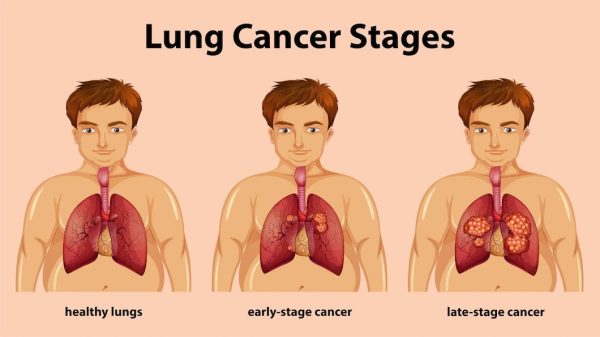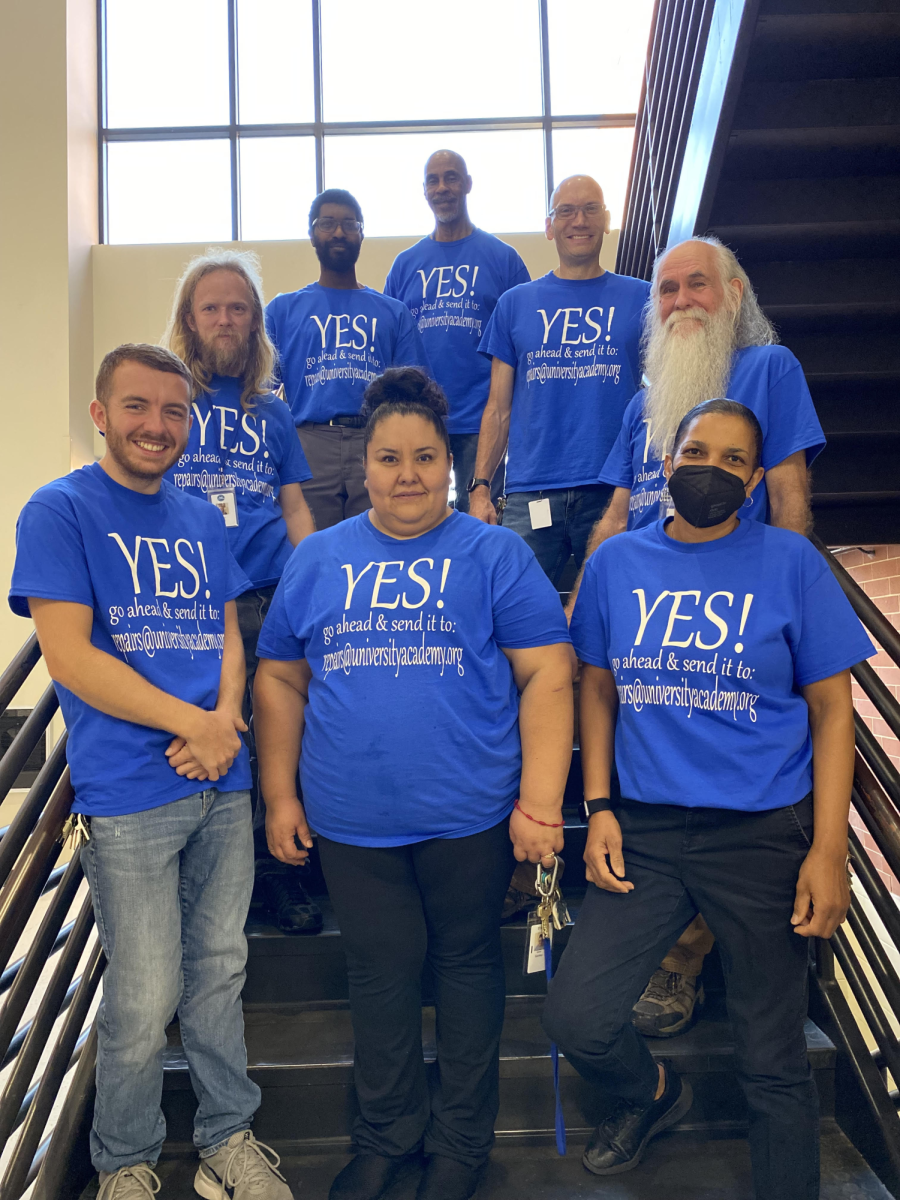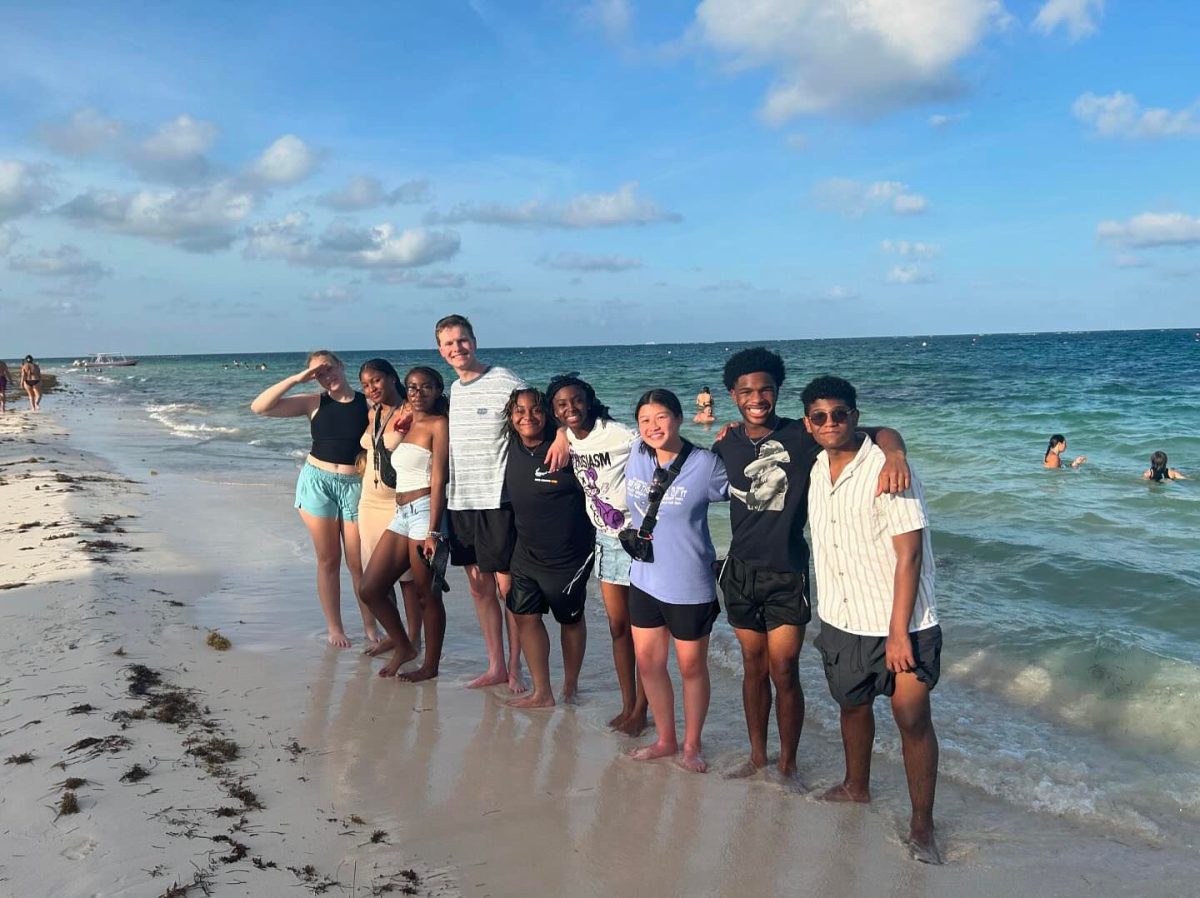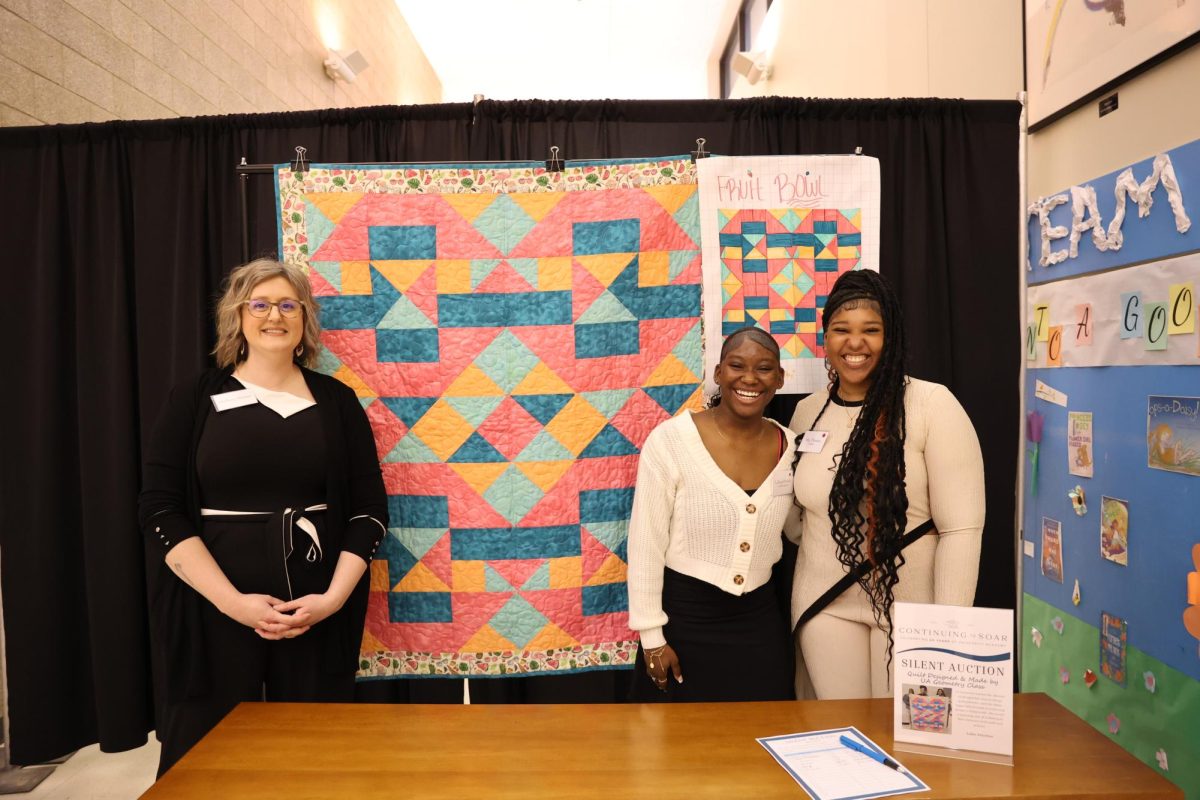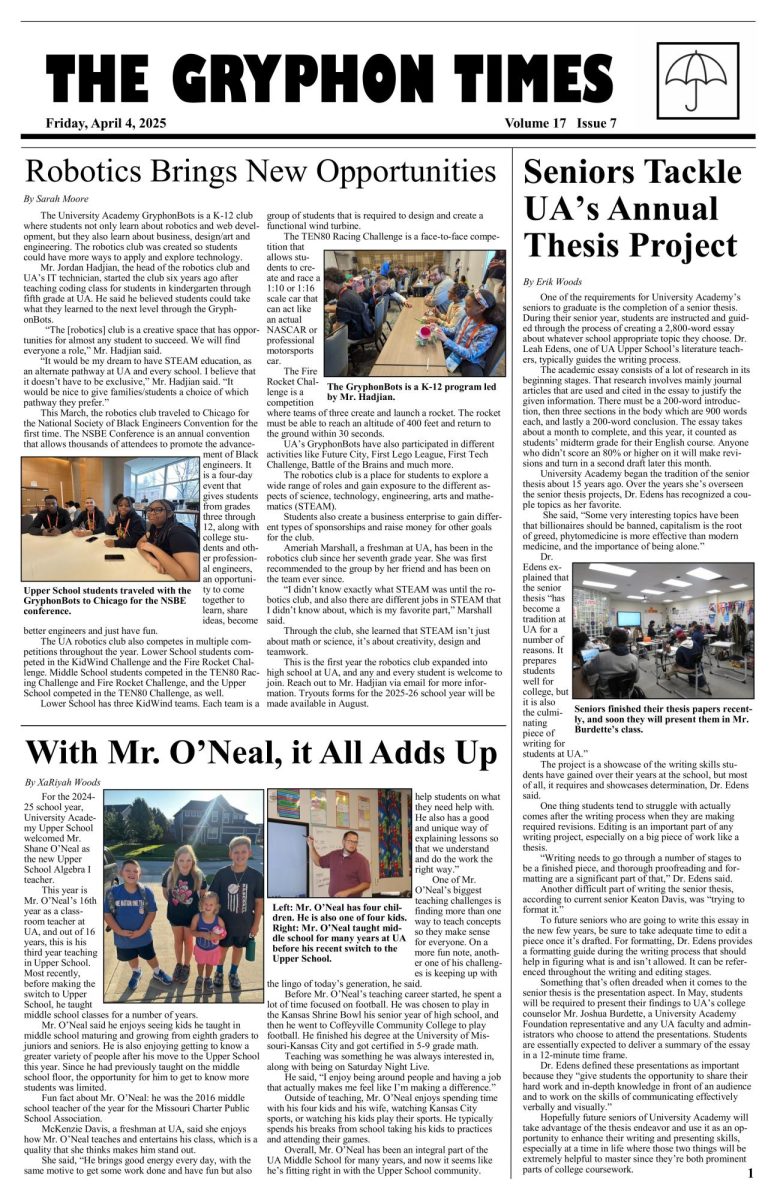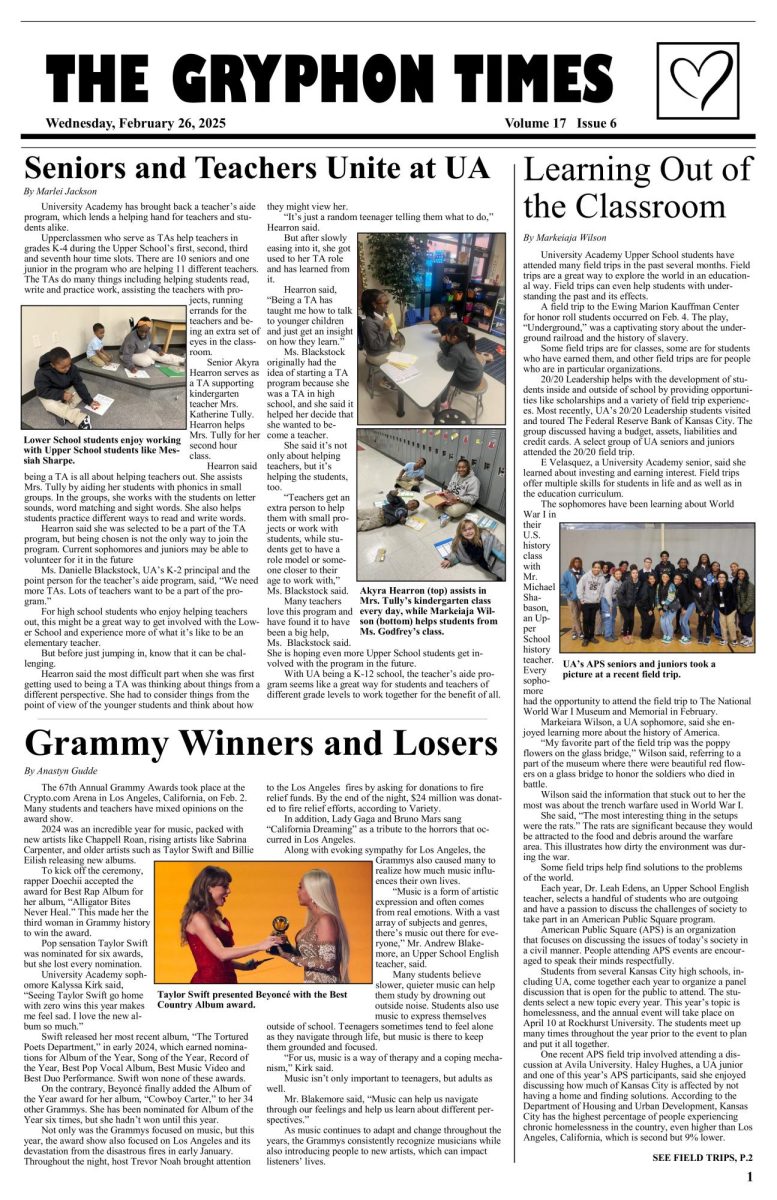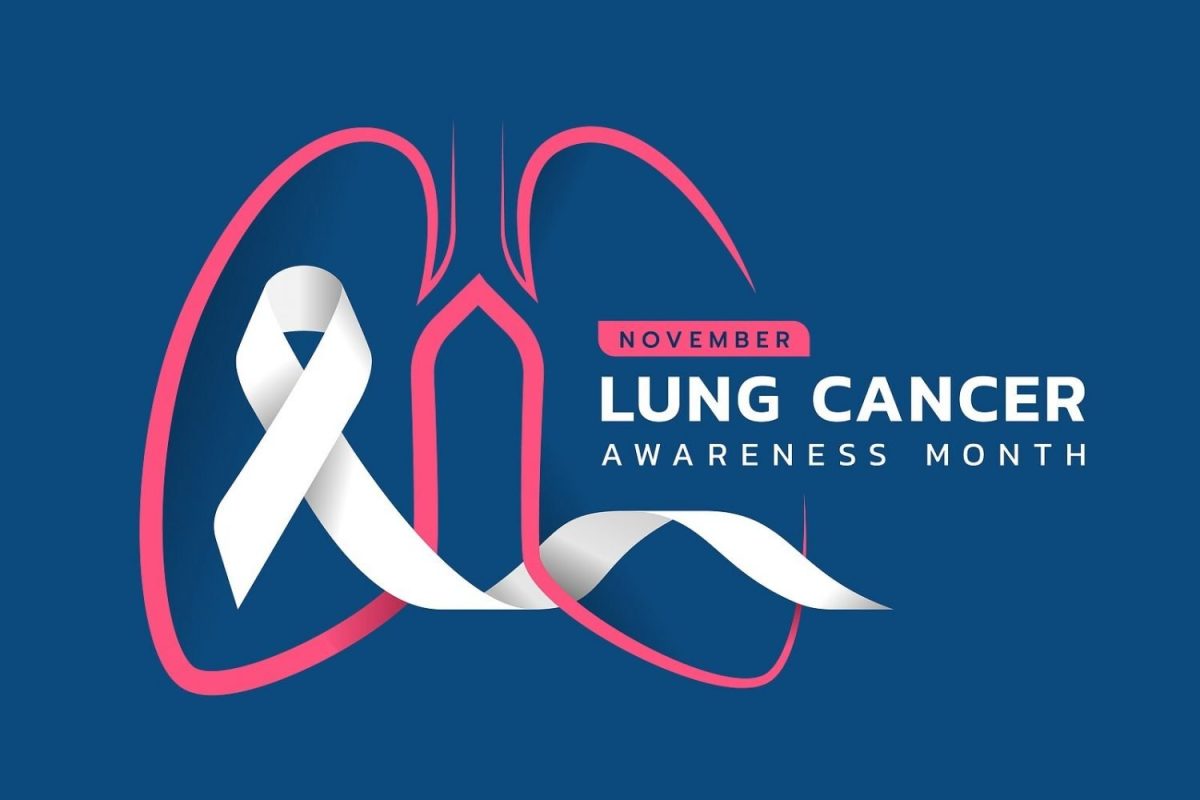Did you know that it’s Lung Cancer Awareness Month? Lung Cancer Awareness Month takes place all throughout November. Lung carcinoma, commonly known as lung cancer, is a deadly disease that occurs in the lungs when the cancerous lung cells grow uncontrollably.
University Academy freshman LaReviah Gilyard’s grandmother has been diagnosed with lung cancer, and she said it’s hard for her to cope with the diagnosis. She said her grandmother’s cancer battle makes her emotional, but she tries to support her through the process and keep her company whenever she can.
There are two different types of lung cancer, non-small lung cancer and small cell lung cancer. According to the American Cancer Society, non-small lung cancer is a variant that is typically caught and makes up 85% of cases. Small cell lung cancer starts off smaller, but it spreads faster.
A few things that play a role in causing lung cancer include smoking, inhaling second hand smoke, air pollution, having previous lung diseases and possibly bad genetics.
Smoking is one of the biggest causing factors because of the fact that it has so many risks attached to it. According to the Centers for Disease Control and Prevention, it is the cause of 80-90% of deaths in people who have lung cancer. Tobacco smoke has carcinogens, something that causes cancer, which is why inhaling the smoke second handedly can be just as harmful, if not worse than smoking itself.
Genetics also play a part in lung cancer because of the fact that inherited lung mutations can happen. Breathing in radiation and other radioactive substances can also cause lung cancer.
UA government teacher Mr. Dustin Havens has lost a grandmother to lung cancer.
Mr. Havens said, “For something like lung cancer, early education obviously plays a role. ‘Don’t smoke, kids!’ and all that. Although, I think people seriously underestimate the role of genetics in lung cancer and cancer in general.”
Some symptoms of this incredibly dangerous disease can include constant coughing (sometimes including blood), chest pains, fatigue, hoarseness, shortness of breath and/or dealing with constant infections like bronchitis or pneumonia.
Lung cancer has four stages, but it should be only diagnosed by a doctor. There are lots of different treatments including radiation therapy, chemotherapy, immunotherapy and surgery. Depending on what stage it is initially caught in, patients may have a high chance of survival.
How can someone be supportive at the time of a family member or friend’s diagnosis?
“The same way you help any friend or family member,” Mr. Havens said. “Be available, be kind, be patient, etc.”
Gilyard said it is important to be encouraging, positive and be an open ear through a loved one’s diagnosis.
Overall, lung cancer is an incredibly dangerous disease which should not be played with and treated as soon as possible.
In honor of it being Lung Cancer Awareness Month, please stay on top of your health and don’t be afraid to get checked up!
